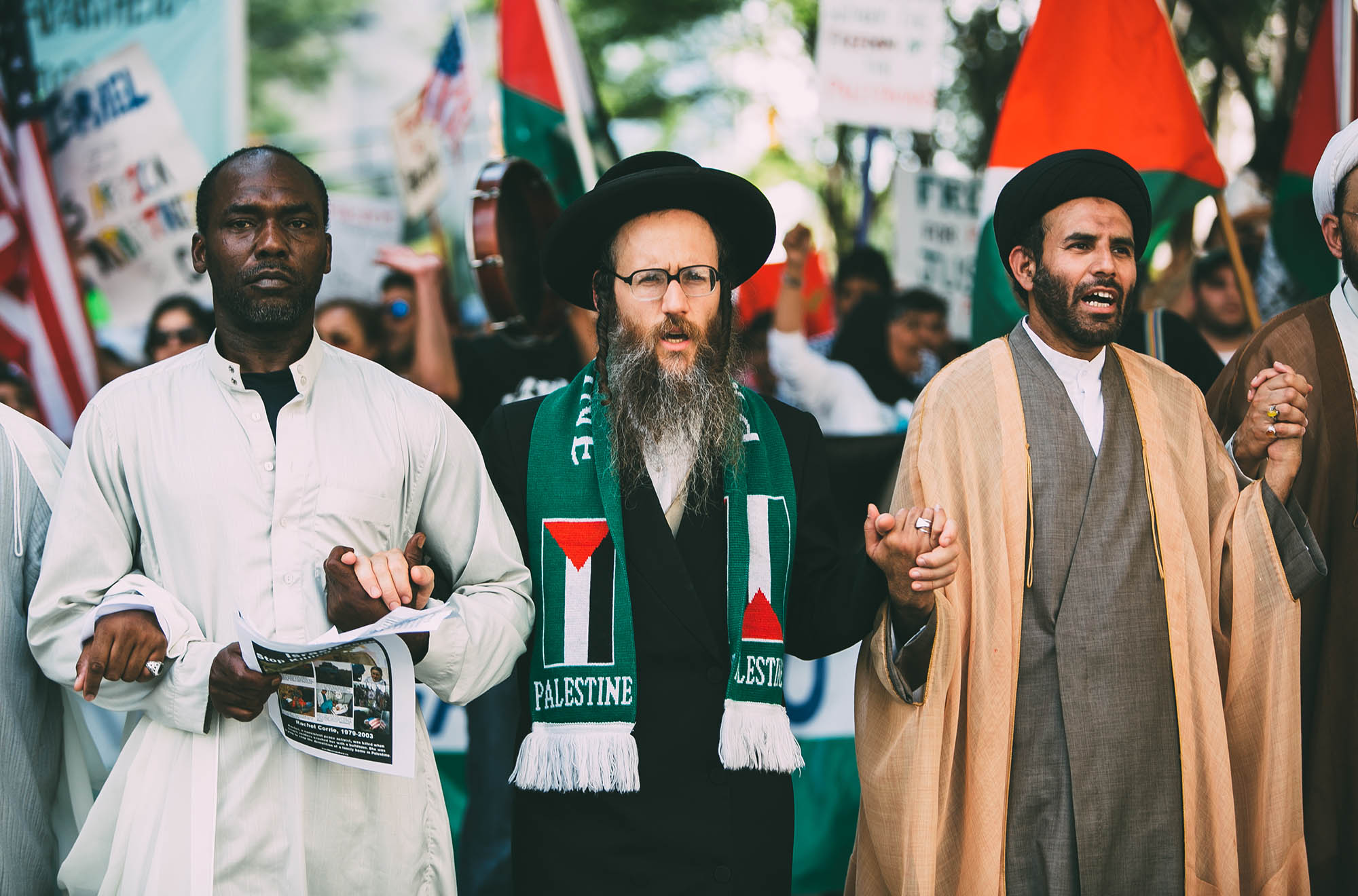Two weeks ago today three beautiful Arab-American youths were gunned down by their neighbor, Craig Hicks, in their Chapel Hill, NC, condo. The victims were University of North Carolina dental student Deah Shaddy Barakat, 23, his wife of six weeks Yusor Mohammad, 21, and Yusor’s sister Razan Mohammad Abu-Salha, 19.
The gunman’s wife Karen Hicks quickly assured the public that her husband’s actions were unrelated to religion, although the three victims were Muslim. She insisted that his crime simply represented the escalation of an ongoing quarrel over parking. Taking her word at face value, the police dismissed the notion that religious profiling was involved and Fox News concurred, their headline reading “Parking dispute, not bias, triggered triple murder, say NC police.”[1] Most corporate media coverage followed suit.
But we have good reason to doubt Karen Hicks’s words. The truth in what she said lies in the fact that her husband had earned a reputation in his housing complex for being a bully. In addition, parking was one of his pet peeves and he had previously argued with his victims over it—and done so with a gun in his waistband. But Karen Hicks’s truth doesn’t go far enough for she failed to mention that her husband described himself on Facebook as “a gun-toting anti-theist.” His own connection of his passion for the second amendment with his religious hostility is very significant. Add to that the fact that his Facebook page shared numerous anti-Muslim posts and links—some put up just days before the murders—and you have all the makings of a hate crime. In addition, Yusor had previously told family members of Hicks’s complaint to her that her head scarf made him uncomfortable.[2]
A banner photo on Hicks’s Facebook page read, “I don’t deny you your right to believe whatever you’d like; but I have the right to point out it’s ignorant and dangerous for as long as your baseless superstitions keep killing people.” Such hostility seems to have been directed against Muslims since Islamists claiming to represent true Islam commit most of the religious killings reported on nowadays.[3] And one of Hicks’s posts asserted, “I have every right to insult a religion that goes out of its way to insult, to judge, and to condemn me as an inadequate human being—which your religion does with self-righteous gusto.” Again, he didn’t specify which religion he had in mind. But the fact that Muslims are generally less tolerant of attacks on the founder of their faith than are adherents of other faiths suggests that he was targeting Muslims. (Few American Christians or Jews would contest an atheist’s right to insult their religion.)
Still, we’re asked to believe the vigilante killing of three young American Muslims is politically and socially irrelevant. As Philip Gourevitch puts it, “We need to imagine how it would be playing out if it were the other way around—if some gun-toting Muslim, with a habit of posting hate messages about secular humanists, took it upon himself to execute a defenseless family of them in their home.”[4] Wouldn’t many label such an attack an act of terrorism? Barakat’s sister Suzanne Barakat has demanded that authorities investigate the “execution-style murders” as a hate crime. National Muslim activist groups made the same call, as the victims’ photos—with both women wearing headscarves—went viral on social media under the hashtag #muslimlivesmatter.[5] This week Obama hosted an international conference aimed at combatting extremist violence. Islamist extremism undeniably fits that category. But however loath we are to see it, antireligious extremism does too.
In response to the Hicks murders, there has been a huge outpouring of support for the victims’ families from both Muslims and non-Muslims in North Carolina and around the world. At the memorial service, attended by an estimated 5,000 people, Nihad Awad, director of the Council on American-Islamic Relations (CAIR), called on everyone to “fight bigotry with love and compassion.”[6] Azhar Azeez, president of the Islamic Society of North America, expressed his concern that “anti-Muslim rhetoric may have angered some to commit violence against American Muslims.”[7] We need more than ever before to understand the nature of Islam and to renounce all forms of religious profiling. Yet tragically, there seems to be no limit to the amount of “Muslim-bashing” we will tolerate during a political campaign: so effective has scaremongering proven in the polls.[8]
It seems very likely that Hicks’s murders belong in the category of hate crime, defined as a criminal offense “motivated in whole or in part by an offender’s bias against a race, religion, disability, ethnic origin or sexual orientation.” The FBI is currently investigating the crime’s relation to religious bias, but it’s “highly unlikely” the federal government would push for hate crime prosecution if Hicks is found guilty of murder. So says Brian Levin, head of California State University’s Center for the Study of Hate and Extremism. He explains: “If a prosecutor can get the death penalty without needing to prove the additional motive of racial or religious bias, they will often do that.” Elevating Hicks’s crime to the level of a hate crime might make it harder to prove and wouldn’t result in a more severe punishment. Hence, Levin says, “some of the most heinous hate crimes in the US haven’t been prosecuted under hate crime law.”[9]
Regardless of how the crime is finally classified, the ongoing discussion over hate crimes directed against Muslims is long overdue. If we truly decry the brutality of the Islamic State (e.g. ISIL) toward Christians, Shicites, Yazidis and others, we can hardly justify Hicks’s responding to Muslim Americans in kind. They deserve the rights and protections of the law as much as everyone else: Muslim lives matter too.
[1] http://nation.foxnews.com/2015/02/11/police-investigate-possible-hate-crime-killing-3-nc-muslim-students
[2] http://observer.com/2015/02/with-three-murders-in-chapel-hill-america-must-confront-anti-muslim-rhetoric/
[3] http://www.latimes.com/nation/nationnow/la-na-north-carolina-shooting-deaths-20150211-story.html#page=1
[4] http://www.newyorker.com/culture/cultural-comment/guns-chapel-hill-myth-american-vigilante
[5] http://www.latimes.com/nation/nationnow/la-na-north-carolina-shooting-deaths-20150211-story.html#page=1
[6] http://www.cair.com/press-center/american-muslim-news/12859-cair-director-nihad-awad-speaks-before-burial-of-chapel-hill-murder-victims.html
[7] http://mwcnews.net/news/americas/49723-chapel-hill-mourners.html
[8] http://www.thedailybeast.com/articles/2015/01/31/bobby-jindal-s-anti-muslim-jihad.html
[9] http://www.bbc.com/news/magazine-31513523



